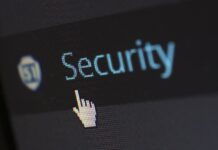In today’s digital age, the internet has become an integral part of our daily lives. We use it to communicate, shop, bank, and access information on a daily basis. However, as we navigate through this online world, we often overlook the importance of online privacy. With the amount of personal information we share online, it’s essential to understand the risks and take measures to protect our privacy.
The Significance of Online Privacy
Online privacy refers to the ability to control the information we share online and who has access to it. This includes personal information such as our names, addresses, phone numbers, email addresses, and financial information. Online privacy is significant because it helps protect our identity, security, and personal information from being misused or stolen.
Online privacy is essential for maintaining our freedom of expression and right to privacy. It allows us to communicate and share information without fear of censorship or surveillance. The right to privacy is also protected by law, and violating someone’s online privacy can result in legal consequences.
Risks to Online Privacy
Unfortunately, online privacy is constantly under threat, and the risks are ever-increasing. Hackers and cybercriminals are constantly finding new ways to access our personal information and use it for their gain. Here are some of the most common risks to online privacy:
a. Phishing scams: Phishing scams are a common way for hackers to steal personal information. They typically involve an email or message that appears to be from a legitimate source, such as a bank or social media platform, but is actually a fake designed to steal your login credentials or personal information.
b. Malware: Malware is malicious software that can infect your device and steal your personal information. This can include viruses, trojans, and spyware.
c. Public Wi-Fi: Public Wi-Fi networks are often unsecured, making it easy for hackers to intercept your internet traffic and steal your personal information.
d. Social engineering: Social engineering is a tactic used by cybercriminals to trick individuals into sharing their personal information. This can include posing as a friend or family member or using other tactics to gain access to personal information.
e. Data breaches: Data breaches occur when a company or organization’s database is hacked, and personal information is stolen. This can result in identity theft and financial loss.
Best Practices for Protecting Your Online Privacy
To protect your online privacy, it’s essential to take proactive measures. Here are some best practices for protecting your online privacy:
a. Use strong passwords: Use a unique, complex password for each online account, and change your passwords regularly.
b. Enable two-factor authentication: Two-factor authentication adds an extra layer of security to your online accounts by requiring a second form of verification, such as a code sent to your phone.
c. Use a virtual private network (VPN): A VPN encrypts your internet traffic, making it harder for hackers to intercept and steal your personal information.
d. Be cautious of phishing scams: Be suspicious of any unsolicited emails or messages, and don’t click on links or download attachments unless you’re certain they’re safe.
e. Use secure Wi-Fi networks: Only use secure Wi-Fi networks, such as those with a password, and avoid public Wi-Fi networks.
f. Use anti-malware software: Install anti-malware software on your devices to protect against viruses, trojans, and other malicious software.
g. Be cautious on social media: Be careful about the personal information you share on social media, and adjust your privacy settings to limit the amount of information visible to the public.
h. Keep your software up to date: Make sure to regularly update your devices and software to ensure that security vulnerabilities are patched.
i. Use encrypted messaging apps: Use messaging apps that use end-to-end encryption to ensure that your messages are private and secure.
j. Be careful with personal information: Be cautious about the personal information you share online, including your full name, address, phone number, and financial information.
k. Use a password manager: Use a password manager to securely store and generate strong passwords for your online accounts.
By following these best practices, you can help protect your online privacy and reduce the risks of identity theft, financial loss, and other cyber threats.
In conclusion, online privacy is essential for maintaining our freedom of expression, protecting our personal information, and safeguarding our identities. With the ever-increasing risks to online privacy, it’s important to take proactive measures to protect yourself online. By using strong passwords, enabling two-factor authentication, using a VPN, being cautious of phishing scams, and following other best practices, you can help protect your online privacy and stay safe in the digital age.






